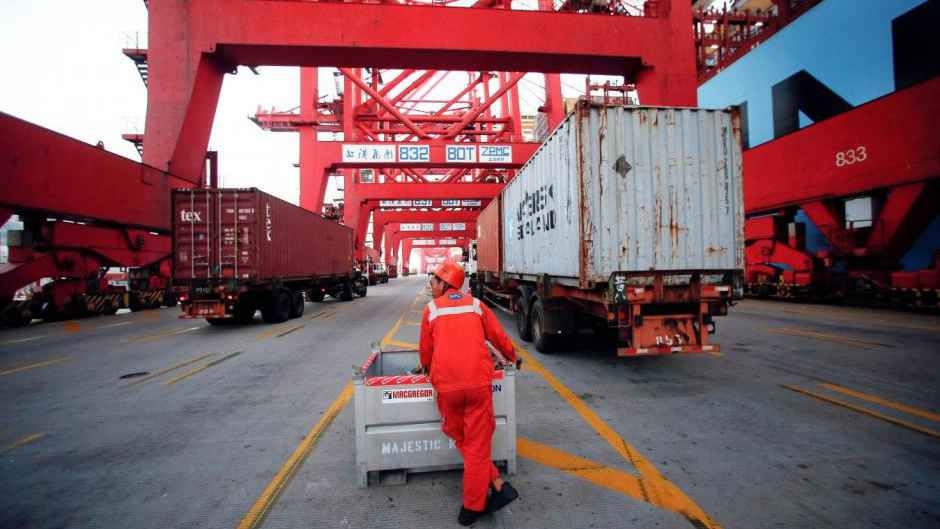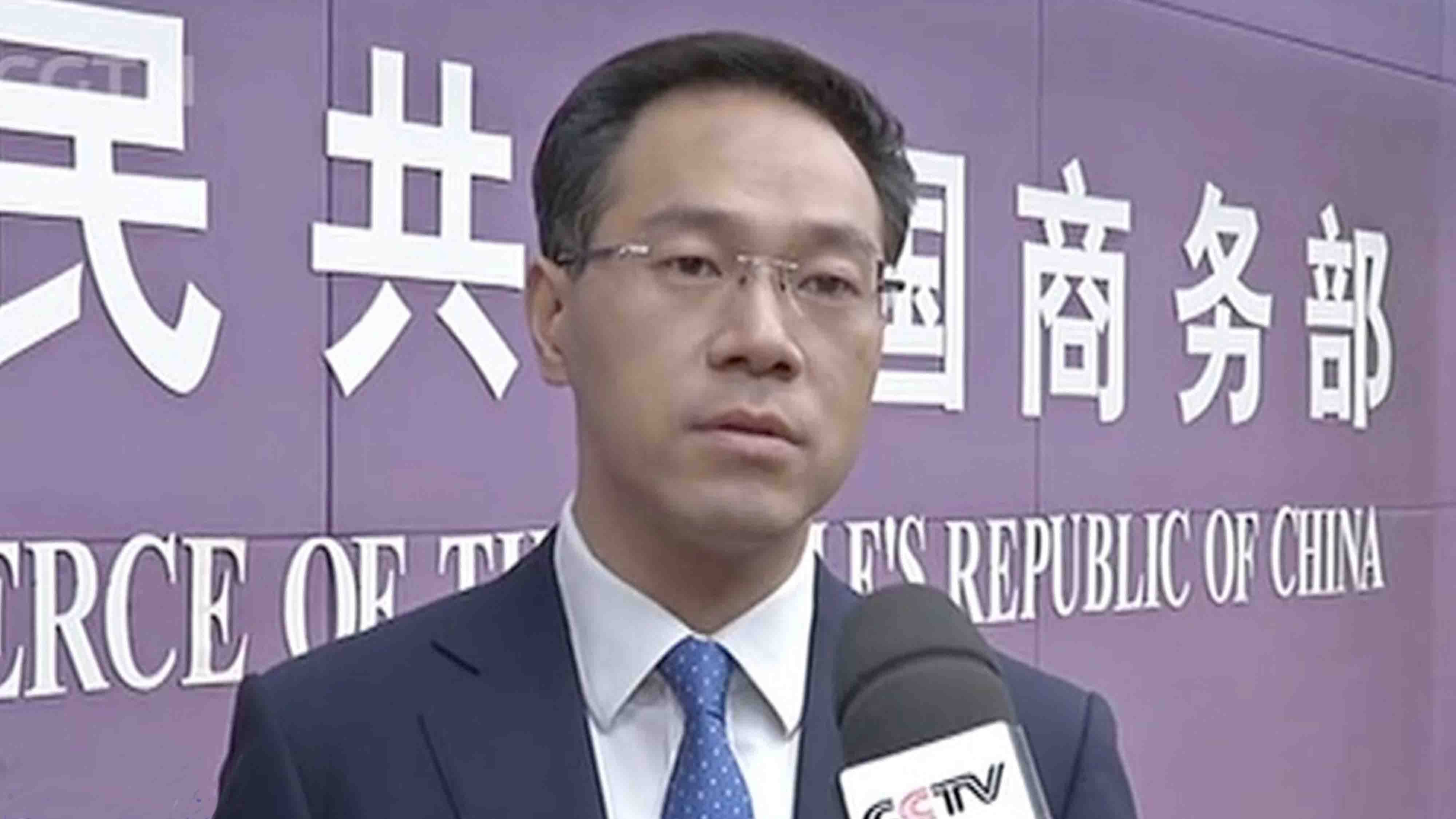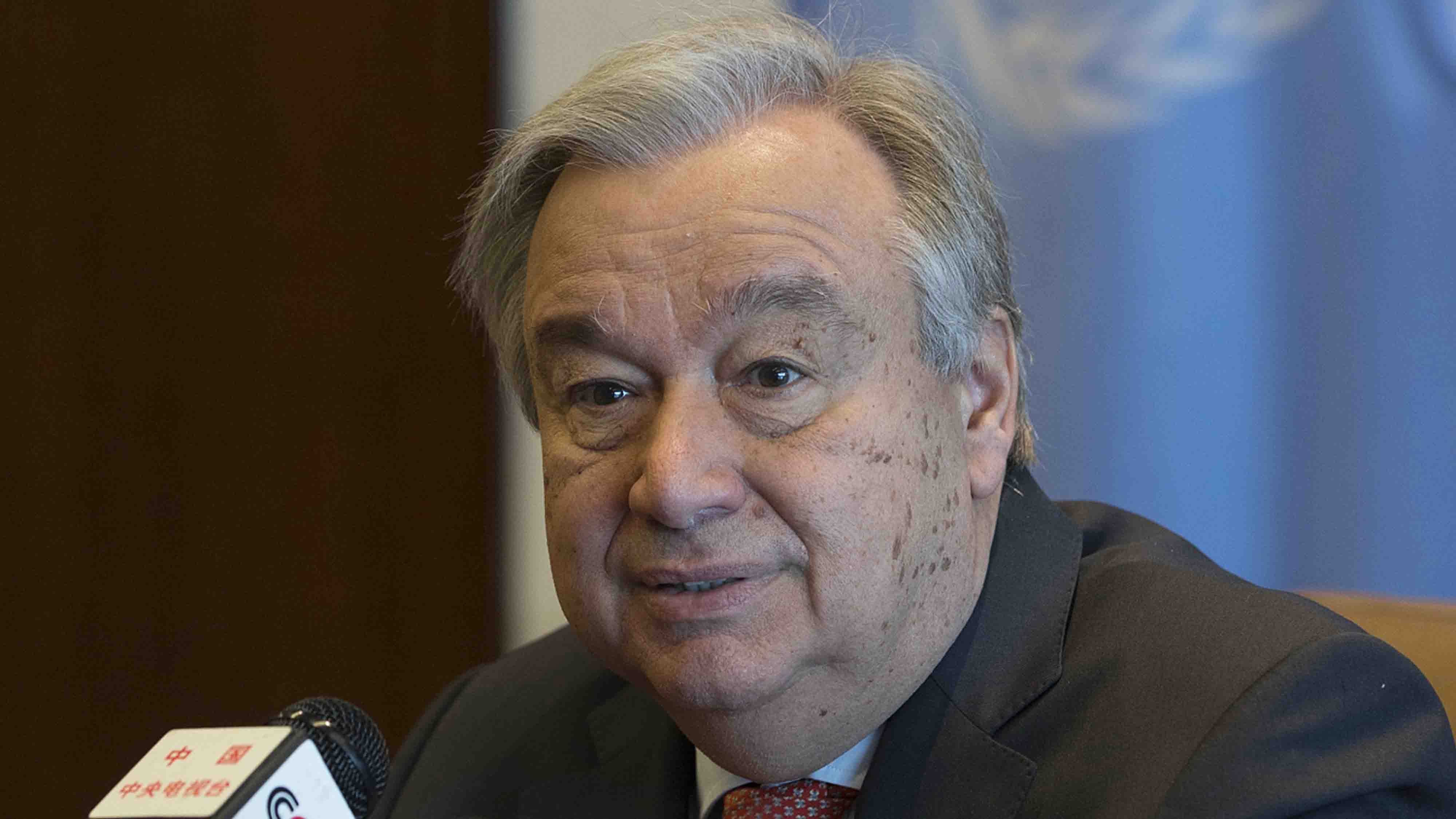
Business
07:12, 06-Apr-2018
China says it doesn't fear a trade war, amid Trump's threats of $100 bln in new tariffs
CGTN

US President Donald Trump announced on Friday that the US is contemplating slapping China with additional tariffs of 100 billion US dollars, as retribution for China’s “unfair retaliation” – a reaction from China to an earlier tariff package unveiled by the US this week – sending jitters of a full-blown trade war.
Both China's commerce and foreign ministries responded on Friday to the threats with one singular message: China does not want, nor does it fear a trade war.

“China will push forward with market opening reforms, endeavor to protect the trade system and for more liberal and convenient trade measures,” the Ministry of Commerce said in a statement.
In an earlier statement on Friday, Trump says that he has instructed US trade representatives to consider whether 100 billion US dollars in additional tariffs would be appropriate and to compile another list according to which tariffs will be imposed.
Trump also added that he has instructed the Secretary of Agriculture to implement a plan to protect US farmers and agricultural interests in light of China’s plans to levy tariffs on soybeans, corn, cotton and tobacco imports in addition to tariffs on fruit, meat and wines which came into effect this week.
Markets took a severe blow upon the surprise announcement, which was disseminated from the Trump office to news and media outlets, with S&P 500 futures taking a nosedive plummeting 1.4 percent within minutes after the news was released, snapping three-day gains. The news further bolstered the Japanese yen, a safe haven currency.
Both China and the US have turned up the rhetoric, each side challenging the other, pledging to maintain a firm grip on its national interests, but talks are still widely open as an option. Negotiations are not completely off the table, but will only proceed if talks are serious, with “verifiable, enforceable and measurable deliverables,” reported Reuters, citing a senior U.S. official.
On the other side, China contends that it has favored negotiations over levying tariffs point-blank from the start, and has only leveraged tariffs of equal size as a measure to “balance the harmful effects on Chinese businesses.”
Even so, the nation’s stance has become increasingly tough, affirming that it intends to fight to the end. Party newspaper People’s Daily has pumped up its rhetoric, with a commentary titled “China’s not scared if the White House wants to stack the chips.”

Roiling trade conflicts between the world’s two largest economies has left the international community increasingly concerned of the implications amid a relatively stable economic recovery.
Efforts need to be made “to preserve what was acquired by many years of work of world organizations” to make sure there is trade benefit to the international economy as a whole, urged UN Secretary-General Antonio Guterres.
Trade wars are always bad for those involved and for the international economy as a whole, Guterres said in an interview on Thursday.
Moody’s also warned today of rising uncertainties brought on by tit-for-tat measures that will likely lead to more volatility in financial markets, reduced investment and lower efficiency, impacting more than just the imports and exports of these two countries, as supply chains are increasingly intertwined.

SITEMAP
Copyright © 2018 CGTN. Beijing ICP prepared NO.16065310-3
Copyright © 2018 CGTN. Beijing ICP prepared NO.16065310-3